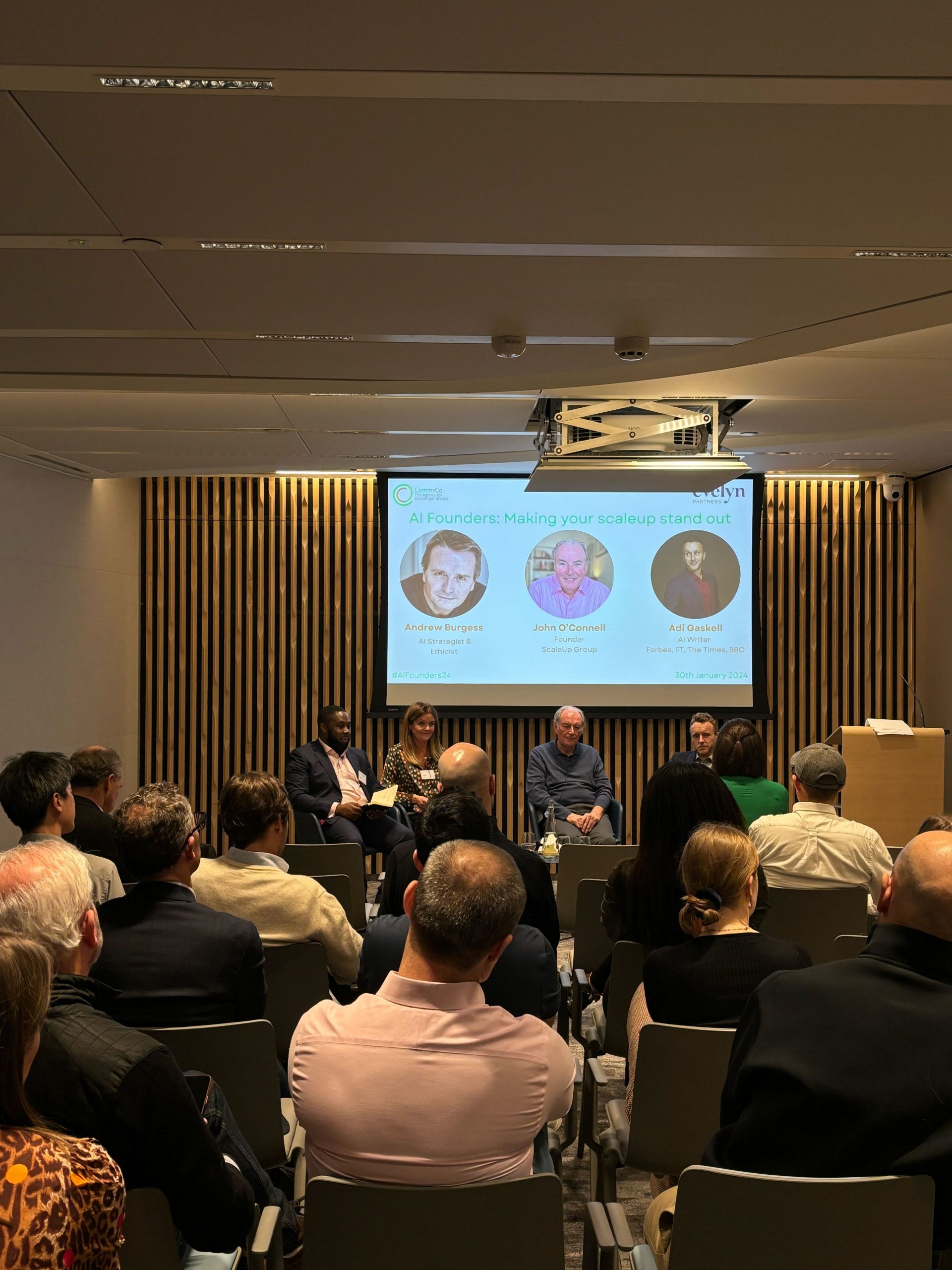When reflecting on AI successes over the past year, so much has happened to change how the public, investors, and AI experts view the industry. A whole new(ish) AI technology – large language models (LLMs) – was introduced and adopted by the world. This means opportunities for AI have exploded.
Healthcare saw a range of breakthroughs: there was evidence that AI can increase breast cancer detection rates, the advent of Google’s Med-PaLM LLM will result in lots more health apps, and researchers are now using AlphaFold’s huge database to analyse over 200 million predicted protein structures. Elsewhere, NASA used AI to predict solar storms, and new battery technologies were identified using AI. These are all really important advances for society.
On top of that, AI regulation became a dinner party conversation! Who would have guessed? But that has to be a good thing as using AI is now essentially a life skill.
With the market becoming increasingly busy, it can be a challenge for new AI founders launching their business. The pace of change has been dramatic, even for people like me who work in this industry every day. And alongside that, the hype has been at another level. This has made it so difficult for founders to get their voice heard over the noise.
How can buyers separate the really important messages from the drivel?
Tips for new AI founders
As always, differentiation is the key. Ask yourself why would someone want to buy your product over someone else’s? Look for the Zeitgeist – for example, using AI in fighting the climate emergency. Make sure you tell a compelling story that encapsulates why you are doing what you are doing and show you are in it for the long term, not just after a quick buck.
You need to think about the AI value chain. The ‘magic’ may not be in the algorithms you use but in how you use them. It could be how easy your product is to set up and use, or down to the data that you use to build the models. Understand where the real value is and where you will just be the same as others.
It’s also important that you’re not too dependent on big tech firms. They can change direction quickly, or recreate your value proposition themselves. Keep your options open so that you can switch cloud provider/AI platform/LLM model relatively easily. The leader today may not be the leader tomorrow.
And, of course, you need to get the right talent in. There are quite a few mediocre data scientists around, or people who claim to be data scientists after doing a few online courses. Really test them, and make sure they can communicate well (a rare commodity in data scientists).
The effect of AI regulation and having good brakes
The backend of last year saw steps to implement regulation, most notably with the EU AI Act and (to a much lesser extent) the UK AI Safety Summit.
This will give much more, and much-needed, certainty about what can be used and can’t be used. Something I abide by is the metaphor ‘With good brakes, it means you are able to drive the car faster’ – this is the approach we need to take with regulation.
As regulation progresses, there will be confusion with different jurisdiction’s regulations (e.g. UK, EU, US), but, hopefully, everyone will gravitate towards the EU solution (as they did with GDPR). Ethical AI will become a feature of all AI applications, and applications will need to prove how ethical they are if they are to get to market and be attractive to buyers. This focus will see a range of new startups focused on regulation and ethical services.
The industry must get certainty on regulation, especially from the UK government. This needs to happen quickly (as in the EU), but currently there is too much vagueness in the proposals. Businesses need certainty in order to invest.
What’s to come for AI?
There is much good to come from AI in the coming year(s). Advanced LLMs will continue to develop, advancing from proof-of-concepts to production apps, and the rise of open-source models will pose a challenge to proprietary models like those from OpenAI and Google. Healthcare will have more breakthrough discoveries, and small steps in quantum computing will have big effects in a few years time.
So much of the focus from the last year has been on LLMs and their impact on business and society. So, for non-LLM startups, there is even more of a need to get their message across. Having said that, it also leaves more opportunity to differentiate from the main market.
We need new AI companies to provide ways of using AI to advance society. But for these new founders, the main hurdle will be getting heard above the hype.
Related Articles



